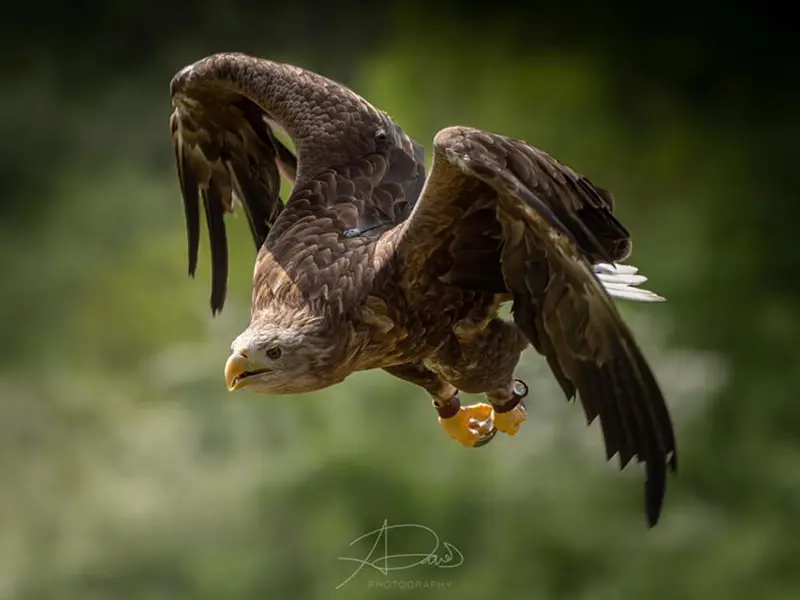“No one will protect what they don't care about; and no one will care about what they have never experienced.” — Sir David Attenborough

White-Tailed Sea Eagle
Aquarius
Aquarius hatched on 8th April 2022 and has a very special role at the Centre. She is the Ambassador for the Eagle Reintroduction Wales programme. She visits Agricultural Shows and Schools to educate and engage members of the public, encouraging support for the chance to have these majestic creatures back in the skies over Wales.









